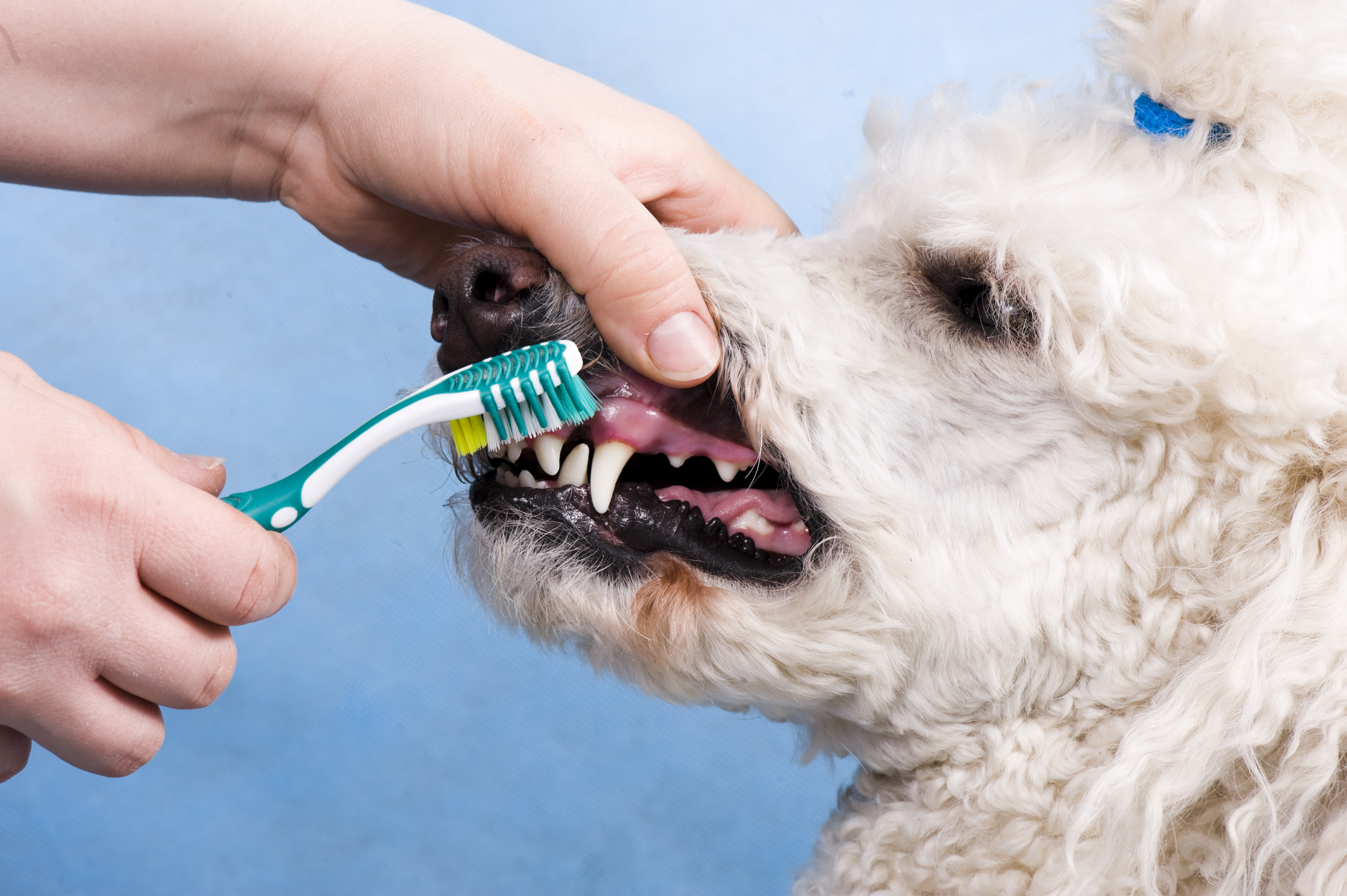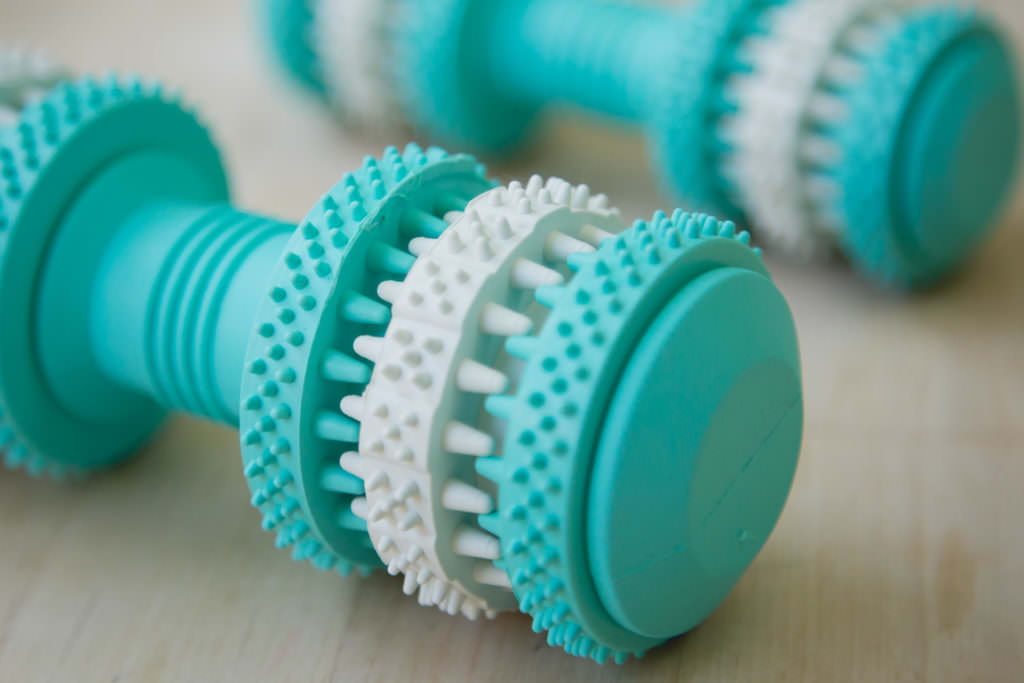Most dogs and humans agree: brushing a dog’s teeth is about as enjoyable as having a root canal!
But despite this well-known fact, due to the carbohydrate rich diets that most pups consume, regular dental care is absolutely essential for your dog.
And it’s more than just ugly teeth and stinky breath that’s at stake. It could be the very life of your dog! Periodontal disease is linked with all sorts of life-threatening diseases, from heart health problems to kidney and liver disease.

Let’s be frank. Regular brushing and veterinarian cleanings are absolutely essential to your dog’s oral health. However, due to the difficulty of daily brushings, and fear over anesthetized cleanings, many dog owners don’t know where to start.
The following tips are some easy ways to get started in taking care of your dog’s oral health:
#1 – Toys Specifically Designed to Clean Your Dog’s Teeth
Toys are for more than just fun; the act of chewing is nature’s original toothbrush. However, not all toys feature surfaces that are ideal for scraping off plaque in hard to reach areas. Look for durable toys with plenty of nobs to rub the teeth and gums.
Our Brushing Bone and Ball by Project Play were designed to message the teeth and gums. Their mint scent adds a burst of freshness to your dog’s breath and you can even squeeze some flavored doggy tooth paste on the bristles for extra fun and function. And like all Project Play™ brand toys, every toy you purchase for your dog provides a toy for a shelter dog waiting for their forever home (because they need healthy teeth, too!)
#2 – Treats Engineered to Reduce Plaque & Freshen Breath
One of the easiest ways to create a routine that sticks is to make it enjoyable for both you and your dog. What better way than with a treat?
Any treat that is low in carbs and that features a rough surface for chewing will be beneficial to your dog’s oral health. But in recent years, many products have surfaced that contain additional ingredients that support dental health and breath such as enzymes and fresh mint. These ingredients work to help break down plaque and fight bad breath.
#3 – Dental Sprays, Wipes, and Water Additives
Dental sprays, wipes, and water additives are also good ways to support your dog’s dental health. Although not nearly as fun as options #1 and #2, and not nearly as effective as brushing, these products can supplement your dog’s overall oral health plan. Additionally these products can be significantly more economical than chews or treats.
#4 – Low Carb, Ancestral Diets Designed to Scrape Teeth Clean
It may come as a surprise to some, but dogs were not designed to eat kibble! Although dry dog food is both convenient and cost effective, our pups pay the price when it comes to their dental health as the high carbohydrates accumulate on their teeth and gums and lead to tartar buildup.
The best way to prevent periodontal disease is to re-engineer your dog’s diet by starting with the basics. Consider home-based cooked or raw ancestral diets that include raw bones. The surface of the bones works to keep your pup’s teeth clean, and the low carb ingredients lead to less accumulation of plaque.
When it comes to your dog’s dental health, whatever you do, do something! Talk to your vet and come up with a plan. Our dog’s lives are short enough, they deserve the best!
These statements have not been evaluated by the Food and Drug Administration. This product is not intended to diagnose, treat, cure, or prevent any disease. The information on this website is not intended to replace a one-on-one relationship with a qualified healthcare professional.

